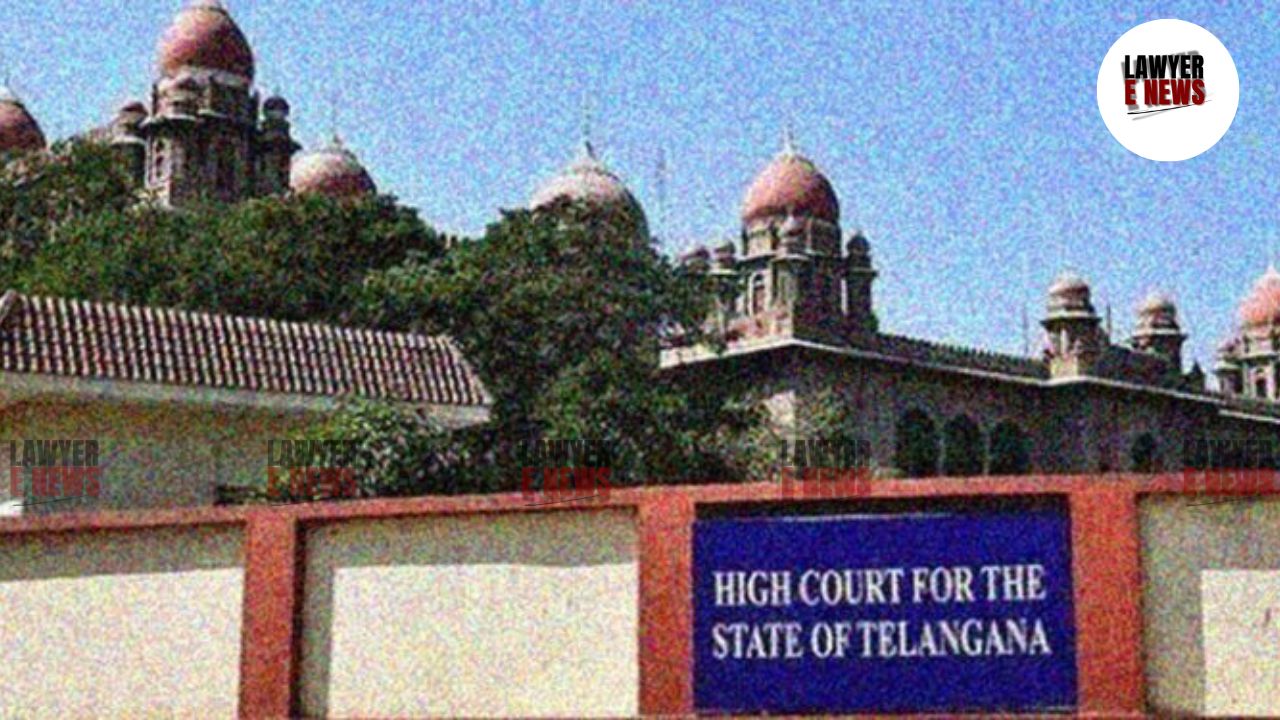-
by Admin
15 February 2026 5:35 AM



On September 23, 2024, the Telangana High Court, in Boda Priyatham Reddy and Others vs. The State of Telangana, addressed the contentious issue of determining the Full Tank Level (FTL) of Durgam Cheruvu. The petitioners claimed that the notified FTL exceeded the original extent, encroaching on their private property. The Court directed the Lake Protection Committee to reconsider the petitioners’ objections through a personal hearing and finalize the FTL within six weeks. The Court further restrained the authorities from demolishing any constructions raised by the petitioners until the FTL is determined.
The dispute centered on the FTL of Durgam Cheruvu, a tank located in Hyderabad, whose extent was initially recorded as 65.12 acres. However, a 2014 preliminary notification by the Hyderabad Metropolitan Development Authority (HMDA) indicated an FTL covering more than 160 acres. The petitioners, whose properties fell within this expanded FTL, challenged the notification, arguing that it exceeded the original engineering standards and encroached on private land. Despite submitting objections to the notification, the Lake Protection Committee had not considered them, prompting the petitioners to file writ petitions.
The key legal issue revolved around the determination of Durgam Cheruvu’s FTL and whether the notified extent encroached upon private property. The petitioners contended that their lands, which were being classified as part of the FTL, were wrongly included. The Court observed that the FTL must be determined based on official documents and standards set by the Irrigation Department and the Revenue Department, as per Rule 3 of the Andhra Pradesh Building Rules, 2012.
The petitioners argued that their objections submitted in response to the HMDA’s preliminary notification had not been considered, which violated the principles of natural justice. The Court upheld the petitioners' right to a personal hearing before the Lake Protection Committee, ensuring that their objections must be considered before any final decision is made on the FTL of the tank.
“The Lake Protection Committee shall hear the petitioners and shall decide the objections filed by the petitioners by a speaking order.” [Para 22]
The petitioners raised concerns about their right to property under Article 300-A of the Constitution of India, alleging interference with peaceful possession of their lands due to the expanded FTL. The Court directed the respondents not to interfere with the petitioners’ possession or demolish any constructions until the FTL is finally determined.
"The respondents were directed not to interfere with the petitioners' possession until the FTL is determined." [Para 23]
The petitioners were given one week to resubmit their objections to the Lake Protection Committee. The Committee was directed to hold a hearing on October 4, 2024, where the petitioners would present their objections.
After considering the petitioners' objections, the Lake Protection Committee must issue a final notification on the FTL of Durgam Cheruvu through a speaking order. This entire process must be completed within six weeks from the date of the petitioners' appearance before the Committee.
The Court recorded the assurance given by the government that no action, including demolition of the petitioners’ constructions, would be taken until the FTL determination process is completed.
"Till the aforesaid exercise is carried out, no action shall be taken for demolition of the construction raised by the petitioners." [Para 23]
The Telangana High Court, while refraining from expressing any opinion on the merits of the case, emphasized the importance of due process and the right to a fair hearing. It directed the Lake Protection Committee to reconsider the objections raised by the petitioners regarding the FTL of Durgam Cheruvu and to finalize the FTL after providing a personal hearing. The Court’s order ensures that no demolition of the petitioners’ properties will occur until the matter is resolved.
Date of Decision: September 23, 2024
Boda Priyatham Reddy and Others vs. The State of Telangana and Others
